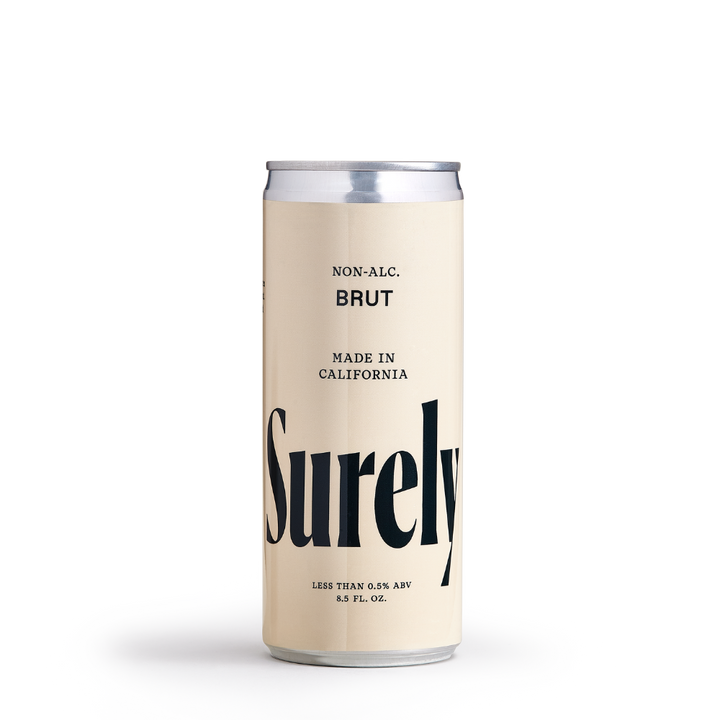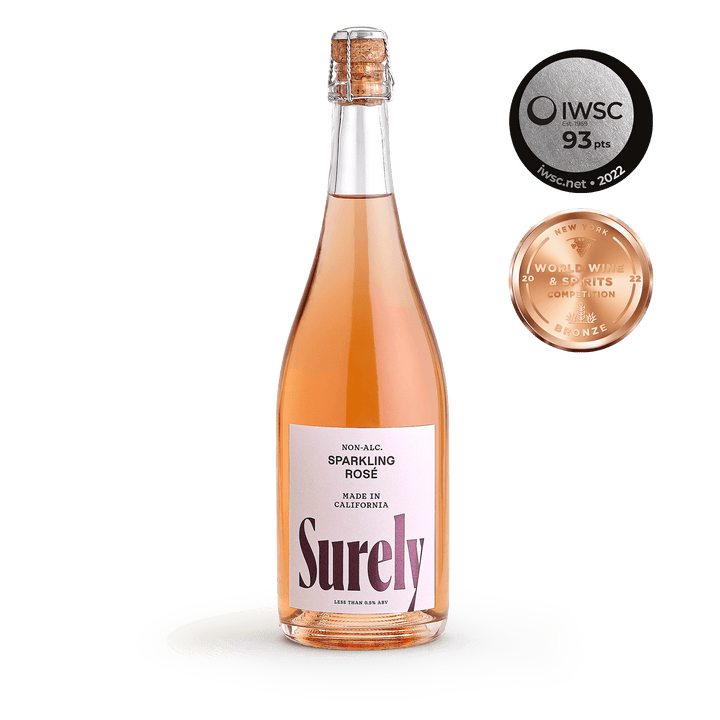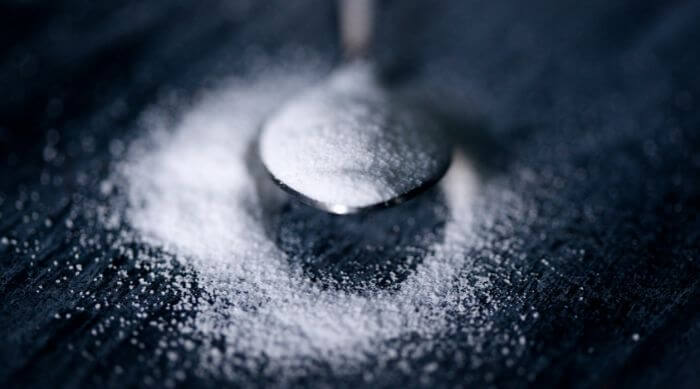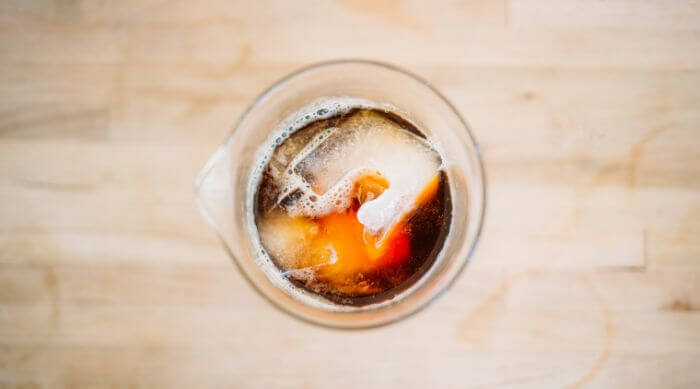If you’ve ever experienced what feels like an amplified tipsy effect after a round of sugary sweet drinks versus the same amount of non-sugary alcohol, you may come to one conclusion.
It’s the sugar making you feel more drunk than usual, right?
Well, not really. Sugar may have the opposite effect, but only when it’s added after the fermentation process. Let’s clear up some confusion so you know how cautious you should really be before that next round of tropical drinks.
Table of Contents
The Role of Sugar in Alcohol Strength
How Added Sugar in Cocktails Impact Alcohol Metabolism
Understanding Alcohol Content
Alcohol by volume, or ABV, is the amount of ethanol in alcoholic beverages. The higher the ABV, the stronger the drink, whether you’re sipping on a sweet margarita or shooting tequila straight.
A higher ABV also affects your blood alcohol content (BAC) and breath alcohol concentrations (BrAC) faster than a lower-ABV beverage.
High-ABV wines typically have a high sugar content to start, either from the type of grapes used, added sugars, or yeast strains. Spirits go through an additional distilling process that purifies or concentrates the fermented product for an even higher ABV.
There are math equations out there that allow homebrewers to calculate alcohol percentages, but ABV is typically measured by tools that look at sugar consumed by yeast in fermentation. These are called hydrometers, and there’s definitely a learning curve involved in their use.
Most casual drinkers rely on labels. The higher the ABV, the more quickly you’ll see the effects of alcohol, like blurred emotions.
If you’re worried about the morning-after hangover and bad sleep, stick to lower-ABV beer, cider, or wine. Try cocktails that include just a dash of alcohol over sweet drinks that mask any bitterness. Your drinks will likely cost less, too.
Better yet, test out alcohol alternatives like Surely’s non-alcoholic Sparkling Brut in convenient single-serving cans.
$24.99
Dry non-alcoholic bubbly white. Hints of apple, pear, honey and citrus notes. Better than champagne.TASTING NOTES: The vibrant combination of apple, pear, honey and citrus notes intertwined with a crisp backbone. The acid and sweet notes of the fruit pair beautifully… Read MoreNon-Alcoholic Brut Can 4-Pack

The Role of Sugar in Alcohol Strength
The amount of sugar added during (not after) the fermentation process is what affects the alcohol content or alcohol levels of a cocktail. Sugar added via mixers or simple syrup doesn’t increase the ABV of alcohol in a drink.
In winemaking, wine yeast and sugars from wine grapes are converted into ethanol and carbon dioxide (CO2). In flat wine, most of the CO2 dissolves. Sparkling wines go through a second fermentation to create more CO2 and carbonation.
There are a number of different factors that allow winemakers to control the depth, flavor, and tannins in their finished product, but the science remains the same.
Sugar + yeast = alcohol.
The yeast consumes the sugar. So, the more sugar involved, the more the yeast has to munch on and convert to alcohol.
In winemaking, any sugar leftover from the fermentation process is called residual sugar. There isn’t much left over in dry red and white wines, but some winemakers add sugar along the fermentation process to either adjust for flavor or bump up the alcohol content.
Fortified wines like port and sherry range from ABVs of 15-22%, thanks to the added sugars. It’s worth mentioning here that servings of port are typically much smaller than your standard 5-oz pour of wine.
Adding sugar to fermentation can affect the alcohol content of any type of alcohol, but it doesn't always result in something that tastes good. Too much sugar can lead to stressed yeast, for example. That can mean off-putting wine or a pretty funky beer.
How Added Sugar in Cocktails Impact Alcohol Metabolism
Now that you know all about the science behind fermentation, let’s talk mixed drinks. Sugar added to alcohol after fermentation in the form of fruit juices, soft drinks, or a sugar rim won’t make the alcohol stronger.
In fact, the sugar in these drinks may actually slow down the absorption rates of alcohol because your body has something extra (the sugar) to metabolize.
The downside is that drinks with a sweet taste go down easier and can make it hard to gauge how much you drink. Just because it takes your body longer to metabolize that drink doesn’t mean you’ll wind up less drunk in the end.
The alcohol levels you consume will always catch up with you, whether you can taste it or not.
It’s important to watch your alcohol consumption no matter what you’re sipping, especially when you’re not sure about the ABV of that mixed drink.
A similar warning applies to drinks made with artificial sweeteners, sugar alcohols, and sugar-free diet sodas. If anything, the lack of sugar to metabolize in a mixed drink may actually increase alcohol absorption rates in the body.
Putting sugar and alcohol together could be a recipe for binge drinking, even alcohol poisoning in the short-term, and a pattern of heavy drinking in the long-term. As always, moderation is key.
The Myth of the "Sugar Rush"
Sweet mixers and added sugars may not affect the amount of alcohol in your cocktail, but they can have unintended effects on your body that may feel like you’re getting tipsy faster.
One study looked at the combo of alcohol and glucose in young people and found that sugar can have heightened addictive properties when mixed with alcohol. Both give you a temporary rush of good feelings. Sugar can come with a boost in energy, or a “sugar rush.”
Sugars are just simple carbohydrates, the main source of energy for your body.
How your body reacts to sugar and alcohol depends on your individual alcohol tolerance and your body’s metabolism.
Effects of Sugary Alcoholic Drinks on the Body
Sugary cocktails may taste delicious in the moment, but they can have some unintended negative effects if you overdo it. Before we get into that, it’s important to understand the different types of sugars out there, especially if you’re monitoring your blood sugar.
Fructose is a naturally occuring form of sugar in fruits, vegetables, and honey. It can also be an artificial additive in the form of high fructose corn syrup. The natural form of fructose has the fewest harmful effects on your body.
Sucrose is table sugar. It’s naturally occurring in some produce and grains, but it also gets snuck into processed foods like cereals and packaged treats.
Glucose comes in the form of carb-rich foods. This one is your body’s main source of energy.
You may see a combination of these sugars in your mixed drinks. While some are better than others, moderating your consumption of sugar as a basic rule is always a good idea.
Now, here are a few negative effects of too many sugary drinks:
- Weight gain: You’re already drinking empty calories with alcohol, but those sweet cocktails are even worse on your diet. A standard mai tai clocks at around 300 calories. Skip the sugary add-ons if you’re trying to manage your weight or struggling with obesity.
- Increased diabetes risk: Too much sugar puts you at risk of developing type 2 diabetes. It can also make it harder to manage active diabetes and lead to insulin resistance. Alcohol on its own can affect diabetes medications, too.
- Liver damage: Drinking too much can lead to permanent liver damage. Too much sugar can exacerbate the problem. Diets high in sugar are linked to higher rates of non-alcoholic fatty liver disease.
- Dental health issues: Your parents weren’t lying to you when you were a kid. A diet high in sugar is bad for your teeth and increases your risk of tooth decay. Heavy alcohol use is linked to higher rates of cavities, gum disease, and mouth ulcers.
- Digestive problems: A diet high in sugar can affect your gut microbiome, cause bloating, and mess with the health of your intestines. Too much alcohol can do the same. Over time, that can lead to chronic gut inflammation.
- Cardiovascular problems: Drinking too much can increase your risk of heart disease and stroke and raise your blood pressure. Sugary drinks can spike your cholesterol in the short-term and cause chronic inflammation, a predictor for heart disease, in the long-term.
- Intensified cravings: We’ve mentioned this premise already. Sugar and alcohol can make it more difficult to stop drinking. It can also make it easier for you to binge drink unintentionally.
Alcohol Alternatives
Sugar may not make your drinks any stronger, but it’s still a good idea to moderate how many sugary cocktails you indulge in when you’re out. Honestly, it’s a good idea to moderate your drinking whether what you’re sipping is full of sugary additives or not.
Try an alcohol alternative that doesn’t leave you feeling icky the morning after. Surely non-alcoholic wines are a great option for anyone cutting back on their drinking. Start with our non-alcoholic Sparkling Rosé, with crisp, light notes of strawberry, pear & tropical fruits.
$24.99
Award-winning non-alcoholic California sparkling rosé with crisp, light notes of strawberry, peach & raspberry. Rosé all day without the hangover.TASTING NOTES: Flavors of soft strawberry, peach, and raspberry notes are balanced with a light acid for a full finish.FOOD PAIRINGS:… Read MoreNon-Alcoholic Sparkling Rosé

Sources
- The Sugars in Alcohol Cocktails Matter
- Fructose and sugar: A major mediator of non-alcoholic fatty liver disease
- Impact of Alcohol Dependency on Oral Health - A Cross-sectional Comparative Study
- Sugars and Gastrointestinal Health
- Effects of High and Low Sugar Diets on Cardiovascular Disease Risk Factors






